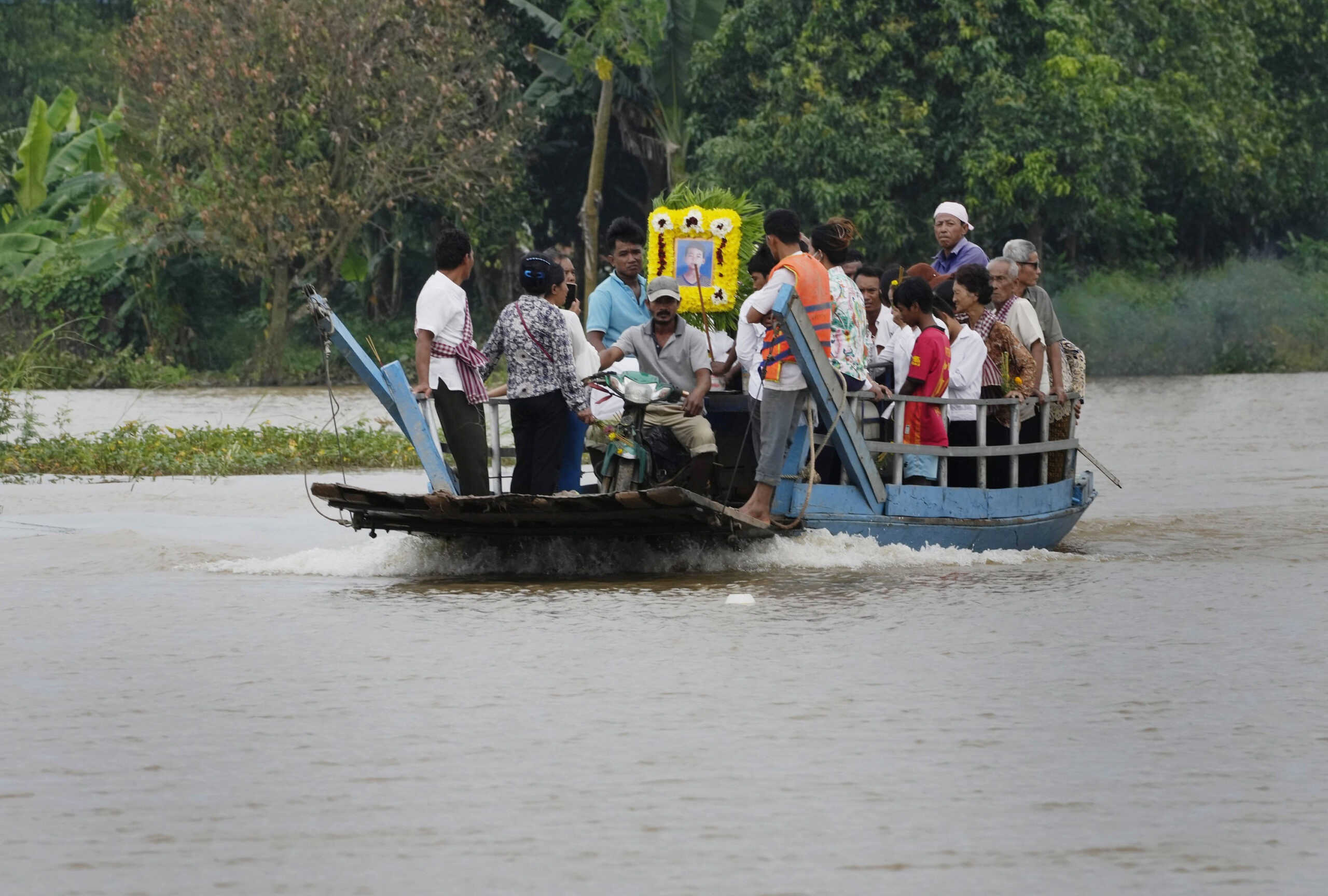Business bad for Bagan’s buggy drivers as pandemic and coup keep tourists away
For 50 years, Maung Maung has been a horse-and-buggy driver in the ancient city of Bagan, ferrying tourists around to its soaring spires and iconic Buddhist pagodas and temples. But tourists have dwindled to a trickle, thanks to the combination of the Covid-19 pandemic that reached Myanmar in March 2020 and military coup the next February. “Recently, a few tourists came back but not as many as before,” said Maung Maung, who’s 70. “Now there are very few. Some days, I don’t make a single dime (what word did he use?). Others, I make only a little money.” Making matters worse, rising inflation has eroded his spending power. When business was good, he typically made 20,000-30,000 kyats (U.S. $6-10) a day, but that’s dropped sharply. He said he charges 1,300 kyats (about U.S. $0.40) per hour for pleasure rides around Bagan and dedicated prices to specific temples pilgrims want to visit. Since the junta took power, a year-and-a-half ago, Myanmar’s economy has tumbled. Last year, its GDP contracted by 18 percent, and the International Monetary Fund estimates that 1.6 million jobs were lost in 2022, or around 7% of the workforce. Economic growth estimates for 2022, including the World Bank’s forecast of 3% growth, seem overly optimistic now that about 40 percent of the population is living under the poverty line. Soaring Inflation, Plunging Currency Inflation was 14 percent in mid-2022 and accelerated to more than 18 percent by mid-September, with rice prices up 35-50% and gas prices spiking amid shortages. That‘s impacted all kinds of businesses, as many rely on generators due to frequent electricity shortages. Myanmar’s currency, the kyat, lost 60 percent of its value against the dollar in 2022. The kyat briefly traded at a record low, below 4,000 kyat to the U.S. dollar, while the official conversion rate is 2,100. The son of farmers, Maung Maung’s father bought him a buggy when he was just 20 years old. He told RFA Burmese that the vehicle had provided him with a steady stream of income for many years behind a mare named Mi Chaw. Bagan, in Myanmar’s central Mandalay region, has long been a cultural capital and a major tourist hub that’s home to the remains of more than 2,200 Buddhist temples and pagodas, mostly dating from between the 11th and 13th centuries. The former capital of the Bagan kingdom that would unify the regions that collectively became known as Myanmar, the city was officially recognized as a World Heritage Site by UNESCO in 2019. Despite dwindling income and few visitors, Maung Maung continues running his business because driving horse-drawn buggies is what he knows, and is one of the few jobs he can do at his age. When he was younger, Maung Maung would farm during the tourism off-season, but he no longer has the strength for agricultural labor. Kyi Kyi Swe, Maung Maung’s daughter, told RFA that he cares deeply about the horses he has bred and taken care of their whole lives, and would never think of abandoning them. “Before, he asked his son to drive the buggy while he worked on the farms,” she said. “As he has grown old, he can’t do farm work and is back in buggy driving.” “He takes good care of [Mi Chaw]. He doesn’t want to see her lean. He feeds her all the time. Even at night, he gets up to feed her,” she said. “The horse also knows him well. She whinnies for more food at night. My dad leaves home around 5:30 a.m. every morning to drive to the buggy station and wait for his turn to drive.” Dwindling tradition Other buggy drivers in Bagan told RFA that the city council has granted licenses to around 300 people to operate horse-drawn carts, but only around 100 of them are actively working due to the decrease in tourism. One driver, named Soe Tint, said horse drawn buggies are as much a symbol of Bagan as the landscape and temples, and are often seen together in promotional material for tourists. But even prior to the pandemic and the coup, the number of buggies in Bagan had declined as they were replaced with modern vehicles. “I want to sell my horse since I have farm work. I paid around 1,500,000 kyats for them, but now they are worth only 700,000-800,000 kyats. I would even sell them for 600,000 kyats only, he said. “If things get better and the visitors return, the buggy business would grow again. Touring Bagan is most enjoyable by horse-drawn buggy. But they won’t come back if the good times don’t return.” Maung Maung acknowledged that if business conditions don’t improve, he will have to give up his business and depend on his family. “My business is so bad that I have been struggling to make ends meet. I just want to make enough for food and other necessities, like rice, cooking oil or salt,” he said. “If I get just a few more visitors [than average], I can make just enough to cover necessities. If I don’t have any, I have to buy them on credit. If the business doesn’t improve, I will have to sell my horses and live on my children’s income.” Translated by Ye Kaung Myint Maung for RFA Burmese. Written in English by Joshua Lipes.





